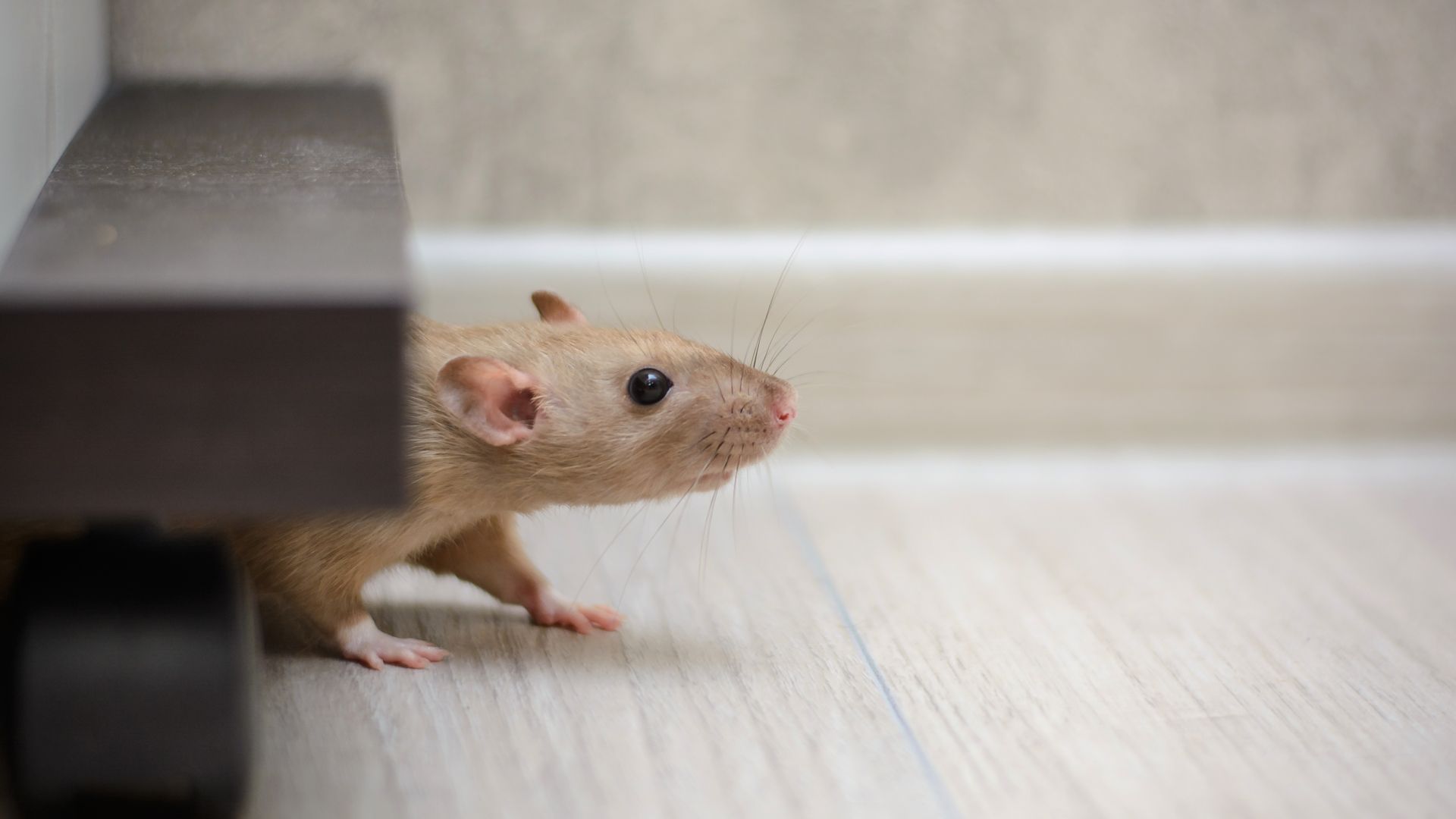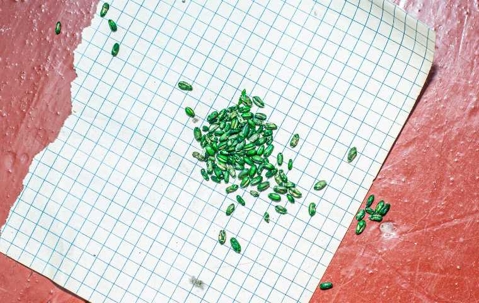Mouse poisons, also known as rodenticides, are substances designed to kill or control rodents such as mice and rats. These poisons come in various forms, including pellets, blocks, powders, and liquids. The active ingredients in mouse poisons are typically toxic substances that affect the rodents' internal systems, causing illness and eventually death.
While mouse poisons are effective in controlling rodent populations, they should be used with caution due to potential risks to non-target animals, pets, and humans. Proper placement and storage are crucial to prevent unintended exposure. Additionally, some jurisdictions may regulate the use of certain rodenticides to ensure responsible and safe usage.
If you are dealing with a rodent issue, it is advisable to follow the product's instructions carefully, consider alternative methods of pest control, and, if needed, seek professional pest management services. Always prioritize safety and use rodenticides responsibly.
What Types Of Mouse Poison Are There?
Mouse poisons, or rodenticides, come in various types, each with its own mode of action. Here are the main categories of mouse poisons:
Anticoagulant Rodenticides:
- First-generation anticoagulants: Examples include warfarin, chlorophacinone, and diphacinone. They interfere with the blood-clotting process, leading to internal bleeding and death.
- Second-generation anticoagulants: Examples include brodifacoum, bromadiolone, difenacoum, and difethialone. These are more potent and effective over a longer period, making them a common choice for rodent control.
Non-Anticoagulant Rodenticides:
- Bromethalin: A neurotoxin that affects the central nervous system, leading to swelling of the brain and death.
- Cholecalciferol: A form of vitamin D3 that causes hypercalcemia and disrupts the rodent's organ function.
- Zinc Phosphide: When ingested, it reacts with stomach acid to produce phosphine gas, which is toxic to rodents.
Natural Rodenticides:
- Botanical Rodenticides: These are derived from plant extracts and may include ingredients like peppermint oil, citronella, or other natural compounds that repel or harm rodents.
- Predator Urine: Some products use urine from natural rodent predators like cats or foxes to create a deterrent effect.
Inorganic Rodenticides:
- Thallium Sulfate: A highly toxic metal that affects various bodily functions in rodents.
- Sodium Fluoroacetate (Compound 1080): A potent poison that disrupts the citric acid cycle in cells.
It's crucial to choose the appropriate type of rodenticide based on the specific rodent issue and the environment in which it will be used. Additionally, users must follow the product's instructions carefully, considering safety precautions and potential risks to non-target animals and humans. Responsible use and proper disposal are essential for effective rodent control without causing harm to the environment.
Where Are Mouse Poisons Found?
Mouse poisons, or rodenticides, are commonly available for purchase at various retail locations. Here are some places where you might find mouse poison:
- Hardware Stores and Home Improvement Centers: Local hardware stores and home improvement centers often carry a variety of rodenticides. These may include anticoagulant and non-anticoagulant options in the form of pellets, blocks, or powders.
- Garden Centers and Nurseries: Some garden centers and nurseries stock rodenticides, especially those designed for outdoor use. These may include products suitable for gardens, sheds, or other outdoor spaces.
- Supermarkets and Grocery Stores: Larger supermarkets and grocery stores may have a pest control section where you can find mouse poisons. These products are often packaged for consumer use and can be found alongside other pest control items.
- Farm Supply Stores: Farm supply stores commonly stock rodenticides for agricultural purposes. These may include larger quantities suitable for use in barns, storage facilities, or outdoor areas.
- Online Retailers: Numerous online retailers offer a wide selection of mouse poisons. This includes major e-commerce platforms as well as specialized pest control websites. Be sure to read product descriptions, reviews, and follow safety guidelines when purchasing online.
When purchasing mouse poisons, it's crucial to read and follow the product's instructions carefully. Additionally, consider the potential risks to pets, children, and non-target wildlife. If you're unsure about the most appropriate product for your situation, consulting with a pest control professional may be advisable.
Is Mouse Poison Safe For Pets?
Mouse poison can pose a significant risk to pets if not used and stored properly. Many mouse poisons contain toxic substances that can harm or be fatal to dogs, cats, and other pets if ingested. The safety of mouse poison for pets depends on factors such as the type of poison used, the concentration of the active ingredient, and the precautions taken by pet owners.
Here are some important considerations regarding the safety of mouse poison for pets:
- Anticoagulant Rodenticides: These types of mouse poisons, which interfere with blood clotting, are commonly used. They can be harmful to pets if ingested. Signs of poisoning include lethargy, weakness, difficulty breathing, and pale gums.
- Non-Anticoagulant Rodenticides: Certain non-anticoagulant rodenticides, such as bromethalin and cholecalciferol, can be highly toxic to pets. They affect the nervous system and can lead to seizures, tremors, and other serious symptoms.
- Precautions for Pet Owners: Always follow the product's instructions carefully. Place mouse poisons in areas inaccessible to pets, such as behind appliances or in secured bait stations. Use pet-friendly bait stations designed to prevent pets from accessing the poison directly. Be aware of the symptoms of poisoning and seek veterinary care immediately if you suspect your pet has ingested mouse poison.
- Alternative Methods: Consider using alternative methods of rodent control that are safer for pets, such as traps or electronic repellents. Keep the environment clean to reduce attractants for rodents.
- Consult a Veterinarian: If you have concerns about using mouse poison around your pets, consult with your veterinarian for advice on pet-safe rodent control methods.
It's essential to prioritize the safety of pets when using mouse poisons. If you're uncertain about the potential risks or the most appropriate product for your situation, seeking guidance from a veterinarian or a pest control professional is recommended. Responsible use and careful placement of mouse poisons can help minimize the risk to pets and other non-target animals.
How To Use Mouse Poison Properly
Using mouse poison safely is crucial to minimize risks to pets, children, and non-target wildlife. Here are steps you should take to use mouse poison in the safest possible manner:
- Read and Follow Instructions: Carefully read and follow the instructions provided by the manufacturer on the product label. Pay attention to dosage, placement, and any safety precautions.
- Choose Pet-Friendly Products: Opt for rodenticides designed to be pet-friendly. Some products come in tamper-resistant bait stations or have formulations that are less attractive to pets.
- Secure Bait Stations: Place bait stations in areas that are inaccessible to pets, children, and non-target animals. Use secure bait stations designed to prevent direct access to the poison.
- Place Bait Strategically: Identify areas where mice are active and place bait stations strategically. Focus on locations where pets cannot easily reach, such as behind appliances or in hidden corners.
- Inspect Regularly: Regularly inspect and monitor bait stations. Replace any consumed or contaminated bait, and ensure the stations remain secure.
- Use Outdoor Products Outdoors: If using mouse poison outdoors, choose products labeled for outdoor use. This helps prevent unintended exposure to indoor pets.
- Keep Poison Away from Food and Water: Avoid placing mouse poison near pet food, water bowls, or food preparation areas. Mice are likely to visit these places, but it's crucial to prevent contamination of pet food.
- Store Securely: Store mouse poison securely in a location that is inaccessible to pets and children. Keep it in its original packaging and away from food items.
- Dispose of Dead Mice Safely: If using anticoagulant rodenticides, be aware that rodents may die in hidden locations. Dispose of dead mice promptly, wearing gloves, and place them in sealed bags before discarding.
- Consider Alternative Methods: If you have concerns about using poison around pets, consider alternative methods of rodent control, such as traps, deterrents, and repellents.
- Seek Professional Advice: If you're uncertain about using mouse poison safely, consider seeking advice from a pest control professional or veterinarian. They can provide guidance on the most appropriate methods for your specific situation.
By following these steps and taking necessary precautions, you can use mouse poison more safely and effectively while minimizing the risk to pets and other non-target animals. Responsible use and careful placement are key to successful rodent control without causing harm to your household or the environment.

